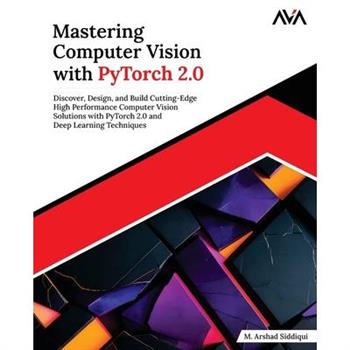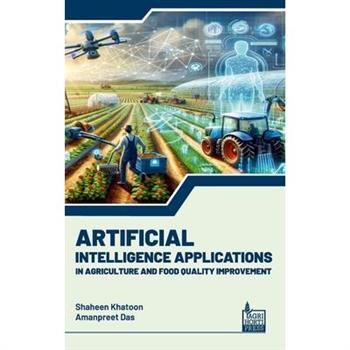Digital Futures in Human-Computer Interaction
The application of futures thinking in Human-Computer Interaction (HCI) has become increasingly important in recent years. Integrating speculative thinking with future design approaches has allowed HCI researchers to explore the potential impacts of technology on digital society. However, the implementation and application of futures thinking in HCI research is an emerging area. Digital Futures in Human-Computer Interaction: Design Thinking for Digital Transformation fills this gap by systematically analyzing HCI's innovation trends in the digital era. This book explores the dialogue between digital transformation and futures thinking for alternative visions of HCI research. The book highlights significant trends and advancements in futures thinking related to HCI. Case studies illustrate the role of futures thinking, offering readers a broad overview of the subject while detailing the competencies and practices that can lead to successful futures design. This engaging and informative reference will appeal to students, academics, and researchers interested in various design aspects related to HCI. These aspects include service design, sustainable design, product design, space design, visual communication, design education, futures studies, and social innovation.
AI for Humanitarianism
This book explores the transformative potential of artificial intelligence (AI) in addressing critical humanitarian challenges. It examines AI's role in enhancing emergency responses, poverty alleviation, and healthcare.Chapters authored by a diverse group of international contributors cover topics such as AI's application in disease prediction, ethical AI practices, and innovative resource distribution. This book uniquely blends theoretical insights with practical case studies, providing a road map for leveraging AI in humanitarian efforts. Readers will benefit from detailed explorations of AI's capabilities and challenges, gaining insights into how AI can drive social change and improve global humanitarian outcomes.Targeted at policymakers, researchers, practitioners, and anyone interested in the intersection of AI and humanitarianism, this book offers valuable perspectives on ensuring AI technologies are both advanced and ethically sound.
Mastering Computer Vision with PyTorch 2.0
Unleashing the Power of Computer Vision with PyTorch 2.0. Book DescriptionIn an era where Computer Vision has rapidly transformed industries like healthcare and autonomous systems, PyTorch 2.0 has become the leading framework for high-performance AI solutions. [Mastering Computer Vision with PyTorch 2.0] bridges the gap between theory and application, guiding readers through PyTorch essentials while equipping them to solve real-world challenges. Starting with PyTorch's evolution and unique features, the book introduces foundational concepts like tensors, computational graphs, and neural networks. It progresses to advanced topics such as Convolutional Neural Networks (CNNs), transfer learning, and data augmentation. Hands-on chapters focus on building models, optimizing performance, and visualizing architectures. Specialized areas include efficient training with PyTorch Lightning, deploying models on edge devices, and making models production-ready. Explore cutting-edge applications, from object detection models like YOLO and Faster R-CNN to image classification architectures like ResNet and Inception. By the end, readers will be confident in implementing scalable AI solutions, staying ahead in this rapidly evolving field. Whether you're a student, AI enthusiast, or professional, this book empowers you to harness the power of PyTorch 2.0 for Computer Vision. Table of Contents1. Diving into PyTorch 2.02. PyTorch Basics3. Transitioning from PyTorch 1.x to PyTorch 2.04. Venturing into Artificial Neural Networks5. Diving Deep into Convolutional Neural Networks (CNNs)6. Data Augmentation and Preprocessing for Vision Tasks7. Exploring Transfer Learning with PyTorch8. Advanced Image Classification Models9. Object Detection Models10. Tips and Tricks to Improve Model Performance11. Efficient Training with PyTorch Lightning12. Model Deployment and Production-Ready Considerations Index
AI for Life
Demystify the world of artificial intelligence with this groundbreaking guide featuring over 100 innovative ways to incorporate AI into your daily life. Every day, it seems like there's a new AI tool on the market and a new, complicated way to use it. But what if you could use AI to make your life easier without the complications? In AI for Life, AI expert and creator of @SmartWorkAI offers over 100 ideas and ready-to-use prompts to get AI beginners started using the technology to actually improve their lives. Beginning with a primer on the basics--including an overview of the popular and free AI tools--you will learn expert-tested tips and tricks to get the most out of your AI use, such as layering prompts to dive deeper into an initial response or asking for the output in different formats. Packed with practical how-to information, AI for Life is the must-have guide for using generative AI to make life easier, more productive, more organized, and more fun!
Artificial Intelligence Applications in Agriculture and Food Quality Improvement
- Precision Agriculture: Utilize AI for optimized resource management, crop monitoring, and yield prediction.- Crop Health Monitoring: Early detection of diseases and pests through AI-powered image analysis and sensor networks.- Smart Irrigation: AI-driven systems for efficient water management and maximizing crop yield.- Supply Chain Optimization: Predictive analytics for demand forecasting and logistics optimization, reducing food loss.- Quality Control: AI-based technologies ensure adherence to safety standards and detect contaminants in food production.- Consumer Preferences: Analyze vast data for personalized product recommendations and market insights.- Ethical and Regulatory Compliance: Address concerns regarding data privacy, algorithmic bias, and equitable access to technology.
Argo CD and Argo Workflows on Kubernetes
DESCRIPTION Git is a widely used version-control system in software development, essential for managing infrastructure as code (IaC), where code defines infrastructure. Kubernetes enhances IaC with GitOps, using Git as the single source of truth for managing operations. The Argo Family offers cloud-native tools designed to simplify the management of jobs and applications on Kubernetes, seamlessly integrating with the GitOps framework.This book begins with a quick start on setting up Argo Projects in a local cluster, followed by an in-depth look at concepts and architecture. Readers will then explore production readiness, security considerations, and team-specific needs, such as user access with single sign-on, declarative configuration changes, observability, and disaster recovery. Once familiar with a production-ready setup, the book deliberates on integrating Argo Workflow, Argo Events, and Argo Rollouts, highlighting their combined capabilities. Finally, the book compares Argo with alternative tools, helping readers assess and choose the best options for their needs.By the end of the book, readers will have a solid understanding of GitOps fundamentals, Kubernetes integration, and advanced deployment strategies. Covering the entire Argo ecosystem with Argo CD, Argo Workflows, Argo Rollouts, and Argo Events. This guide will help readers utilize the full potential of these powerful tools, transforming how they manage and deliver applications in their organizations.WHAT YOU WILL LEARN● Automate deployment processes with Argo CD. ● Deploy new features and software versions confidently with Rollouts.● Leverage cloud-native workflows to automate daily tasks in familiar Kubernetes environments.● Collaborate seamlessly across teams using Argo Projects' robust capabilities, such as Argo CD Notifications and Argo Events.● Use Argo tools like Argo Rollouts to identify and resolve issues quickly.● Stay up-to-date with the latest DevOps trends and technologies.WHO THIS BOOK IS FORThe target audience for this book includes developers, DevOps engineers, platform engineers, and individuals in leadership roles or senior architects who want to learn about cloud-native technologies and Argo Projects.
Project Management Toolbox
Comprehensive, on-the-go toolkit for professional project managers, updated to reflect the tools necessary for today's predictive, adaptive, hybrid work environment Project Management ToolBox is a go-to reference for on-the-job project managers and advanced students of project management, providing a contemporary set of tools and explaining each tool's purpose and intention, development, customization and variations. Examples, tips, and variations guide readers through the application of these tools. The Third Edition, led by bestselling project management author Cynthia Snyder Dionisio, has been updated to offer a contemporary set of tools to reflect changes in project management learning and practice. This edition includes several new chapters that reflect today's predictive, adaptive, and hybrid work environment. New content includes the project canvas, project roadmap, procurement strategy, risk responses, and more. The book is structured to follow the flow of projects, starting with project selection, project origination, planning, implementation, monitoring, and closure. Within each section there is a wealth of tools, examples, tips, and variations to tailor the use of the tools. Sample topics covered in Project Management ToolBox include: Economic methods, such as payback time, net present value, and internal rate of return. Identifying, analyzing and communicating with project stakeholders. Plans for eliciting, managing, and specifying requirements, along with a matrix to tracing requirements. Work breakdown structures, network diagrams, critical path method, and critical chain method. Exploring emerging topics within the world of project management and keeping up to date on the latest, most relevant subject areas, Project Management ToolBox is a must-have resource that enables project managers to improve outcomes, deliver quality products and meet stakeholder expectations.
Unplugged Tots
Introduce your child to the foundations of computer coding and teach them the skills to take on their future, now.Prepare children to be the problem-solvers, inventors, engineers, scientists, and technologists of tomorrow by equipping them with the foundational skills they'll need, today. Through accessible, fun, and engaging activities that are also completely screen-free, Unplugged Tots helps teachers and parents introduce computational thinking skills to children as young as 21/2, giving them a head start in the world of technology.This book: Features 100% screen-free activities -- no computer, tablet, or mobile phone neededRequires no prior technical knowledgeFacilitates learning through structured playHelps you teach pre-computer coding skills to children aged 21/2 to 8 yearsCode is the fundamental building block of all computer programs -- those sets of instructions that power everything from the World Wide Web to your car. Its importance has been recognised by governments all over the world, and programming has been added to countries' school curricula accordingly.This book will help you teach the core concepts behind coding to preschool-aged children (and have fun while doing it!). Just like learning an additional language, the process of learning digital skills has numerous benefits for children (as well as parents, teachers, and caregivers), including improved communication, greater confidence, and perhaps the most important skill of all: the ability to learn from failure.The activities in Unplugged Tots are designed for children aged 21/2 to 8 to enjoy, with help from an adult; the book does not define age ranges for the activities, as children have different abilities, interests, and attention spans. The activities are scaffolded, meaning every child can start with the basics and follow the fun as they progress to other levels. Each chapter also includes tips to simplify and extend the activities, enabling Unplugged Tots to grow with the child!
Virtual Body Language Virtual Body Language
Why does the tail wag the brain? What is virtual autism? Why can't our avatars walk hand-in-hand? Will a nonverbal Babel fish save the world? Jeffrey Ventrella, a seasoned virtual worlds programmer and visual language expert, reviews the history of avatars, smileys, and other expressive forms, and considers a future of spectacular creativity. This book combines thoughtful scholarship with amusing anecdotes from the trenches of Silicon Valley. Virtual Body Language presents a thorough analysis of the neurological, linguistic, aesthetic, and technical aspects of how nonverbal communication can be distributed over the internet. Based on nearly a decade of avatar development, Ventrella has the practical foundation on which to justify even the most outrageous claims, regarding what "avatar" might mean in the future.
Radical Reporting
"If I were giving out an award for 'book of the year' for internal audit professionals, I would certainly award it to her outstanding manuscript: Radical Reporting: Writing Better Audit, Risk, Compliance and Information Security Reports." - Richard Chambers, Former President and CEO, The Institute of Internal AuditorsMost people dread writing reports; they also dread reading reports. What they don't realize is that the techniques that make writing more readable make it more powerful. This is especially relevant for professionals in areas such as audit, risk, compliance, and information security.This small volume provides the tools and techniques needed to improve reports. It does so through addressing crucial concepts all too often overlooked in the familiar rush to perform tasks, complete projects, and meet deadlines.These concepts - the role of culture in communication; the link between logic and language; the importance of organizing thoughts before writing; and how to achieve clarity - may seem academic or theoretical. They're not. Unless writers understand their own thoughts, actions, and objectives, they cannot hope to communicate them at all - let alone clearly.This second edition develops these points with additional material on critical thinking, as well as the use of AI in reporting.
Dancing with Qubits - Second Edition
Unlock the core math and understand the technical nuances of quantum computing in this detailed guide. Delve into the practicality of NISQ algorithms, and survey promising advancements in quantum machine learning.Key FeaturesDiscover how quantum computing works and delve into the math behind it with practical examplesLearn about and assess the most up-to-date quantum computing topics including quantum machine learningExplore the inner workings of existing quantum computing technologies to understand how they may perform significantly better than their classical counterpartsBook DescriptionDancing with Qubits, Second Edition, is a comprehensive quantum computing textbook that starts with an overview of why quantum computing is so different from classical computing and describes several industry use cases where it can have a major impact. A full description of classical computing and the mathematical underpinnings of quantum computing follows, helping you better understand concepts such as superposition, entanglement, and interference. Next up are circuits and algorithms, both basic and sophisticated, as well as a survey of the physics and engineering ideas behind how quantum computing hardware is built. Finally, the book looks to the future and gives you guidance on understanding how further developments may affect you.This new edition is updated throughout with more than 100 new exercises and includes new chapters on NISQ algorithms and quantum machine learning.Understanding quantum computing requires a lot of math, and this book doesn't shy away from the necessary math concepts you'll need. Each topic is explained thoroughly and with helpful examples, leaving you with a solid foundation of knowledge in quantum computing that will help you pursue and leverage quantum-led technologies.What you will learnExplore the mathematical foundations of quantum computingDiscover the complex, mind-bending concepts that underpin quantum systemsUnderstand the key ideas behind classical and quantum computingRefresh and extend your grasp of essential mathematics, computing, and quantum theoryExamine a detailed overview of qubits and quantum circuitsDive into quantum algorithms such as Grover's search, Deutsch-Jozsa, Simon's, and Shor'sExplore the main applications of quantum computing in the fields of scientific computing, AI, and elsewhereWho this book is forDancing with Qubits, Second Edition, is a quantum computing textbook for all those who want to understand and explore the inner workings of quantum computing. This entails building up from basic to some sophisticated mathematics and is therefore best suited for those with a healthy interest in mathematics, physics, engineering, or computer science.Table of ContentsWhy Quantum ComputingThey're Not Old, They're ClassicsMore Numbers than You Can ImaginePlanes and Circles and Spheres, Oh MyDimensionsWhat Do You Mean "Probably"?One QubitTwo Qubits, ThreeWiring Up the CircuitsFrom Circuits to AlgorithmsGetting PhysicalConsidering NISQ AlgorithmsIntroduction to Quantum Machine LearningQuestions about the Future
The AI Glossary
Embark on a journey of clarity and discovery with "THE AI GLOSSARY: Demystifying 101 Essential Artificial Intelligence Terms for Everyone." In a world increasingly powered by AI and ML, understanding these technologies is no longer a luxury but a necessity. This book stands as your guide through the complex terrain of artificial intelligence terms, transforming the intricate into the accessible.Crafted with precision and insight, each term is unraveled not just through definitions but through engaging narratives that connect deeply with real-world applications. From the foundational concepts of "Artificial Intelligence" and "Machine Learning" to the cutting-edge innovations of "ChatGPT" and "DALL-E," this glossary is designed to enlighten, inspire, and empower. Beyond mere explanations, it delves into the ethical considerations and interdisciplinary impacts of AI, making it a comprehensive resource for anyone looking to navigate this transformative field.Whether you're a student embarking on your studies, a professional seeking to broaden your horizon, or a curious mind eager to understand the technologies shaping our future, "THE AI GLOSSARY" is your indispensable companion. Let this book be your beacon, illuminating the path to a deeper understanding of the language of AI and ML, and inviting you to partake in the wonders of this revolutionary domain.
AI in Disease Detection
Comprehensive resource encompassing recent developments, current use cases, and future opportunities of AI in disease detection AI in Disease Detection discusses the integration of artificial intelligence to revolutionize disease detection approaches, with case studies of AI in disease detection as well as insight into the opportunities and challenges of AI in healthcare as a whole. The book explores a wide range of individual AI components such as computer vision, natural language processing, and machine learning as well as the development and implementation of AI systems for efficient practices in data collection, model training, and clinical validation. This book assists readers in assessing big data in healthcare and determining the drawbacks and possibilities associated with the implementation of AI in disease detection; categorizing major applications of AI in disease detection such as cardiovascular disease detection, cancer diagnosis, neurodegenerative disease detection, and infectious disease control, as well as implementing distinct AI methods and algorithms with medical data including patient records and medical images, and understanding the ethical and social consequences of AI in disease detection such as confidentiality, bias, and accessibility to healthcare. Sample topics explored in AI in Disease Detection include: Legal implication of AI in healthcare, with approaches to ensure privacy and security of patients and their data Identification of new biomarkers for disease detection, prediction of disease outcomes, and customized treatment plans depending on patient characteristics AI's role in disease surveillance and outbreak detection, with case studies of its current usage in real-world scenarios Clinical validation processes for AI disease detection models and how they can be validated for accuracy and effectiveness Delivering excellent coverage of the subject, AI in Disease Detection is an essential up-to-date reference for students, healthcare professionals, academics, and practitioners seeking to understand the possible applications of AI in disease detection and stay on the cutting edge of the most recent breakthroughs in the field.
Advanced Analytics and Learning on Temporal Data
This book constitutes the refereed proceedings of the 9th ECML PKDD workshop on Advanced Analytics and Learning on Temporal Data, AALTD 2024, held in Vilnius, Lithuania, during September 9-13, 2024. The 8 full papers presented here were carefully reviewed and selected from 15 submissions. The papers focus on recent advances in Temporal Data Analysis, Metric Learning, Representation Learning, Unsupervised Feature Extraction, Clustering, and Classification.
MultiMedia Modeling
This five-volume set LNCS 15520-15524 constitutes the proceedings of the 31st International Conference on Multimedia Modeling, MMM 2025, held in Nara, Japan, January 8-10, 2025. The 135 full papers and 41 short papers presented in these proceedings were carefully reviewed and selected from 348 submissions. The MMM conference was organized in topics related to multimedia modelling, particularly: audio, image, video processing, coding and compression; multimodal analysis for retrieval applications, and multimedia fusion methods.
Cloud-Native Architecture
Unlock the Secrets of Scalable, Resilient Applications with Cloud-Native Architecture!In today's fast-paced digital landscape, organizations need applications that are not only robust but also scalable and efficient. Cloud-Native Architecture: Mastering Scalable, Resilient Applications in the Cloud is your ultimate guide to harnessing the full potential of cloud-native technologies.This comprehensive book covers everything from foundational principles to advanced strategies, including microservices, Kubernetes, serverless computing, and multi-cloud architectures. Packed with real-world case studies, hands-on examples, and best practices, it's a must-have resource for developers, architects, and anyone looking to excel in cloud-native development.Inside, you'll learn: How to design scalable, resilient systems with the Twelve-Factor App methodology.The role of containers, orchestration, and service meshes in modern architectures.Strategies for securing, monitoring, and optimizing cloud-native applications.Emerging trends like AI integration, edge computing, and serverless Kubernetes.Whether you're a seasoned professional or just starting your cloud-native journey, this book provides actionable insights to elevate your skills and projects to the next level.
The Human Element
Are you ready to discover the benefits of AI without losing the human touch?As artificial intelligence becomes important in the workplace, many professionals find it hard to adapt. How can you use these AI tools while still keeping the quality, creativity, and personal touch that make your work special?"The Human Element: A Non-Technical Guide to Working with AI" is the solution you've been searching for. This helpful guide makes AI easy to understand and shows you how to integrate it smoothly into your professional life. No technical background or skills needed.What You'll LearnChoose the Right AI Tools: Adapt the available solutions for your specific needs.Improve, Don't Replace: Use AI to boost your skills, not to take them away.Keep Professional Standards: Make sure things are of a high quality and authentic while using technology.Make Your Work Processes Run Smoother: Save time while still doing great work.Build AI Confidence: Slowly bring AI into use with practical, real-world strategies.Why This Book Stands OutThe Human Element offers practical insights and relatable examples that connect with professionals like you, unlike complicated technical manuals. This book goes beyond just ideas and looks at real outcomes. It shows you how to use AI in a practical and effective way while keeping your professional values intact.Each chapter provides clear guidance, practical examples, and tips for tackling challenges. This book helps you succeed in a world with AI, whether you're new to AI or want to improve your skills.Who is This Book ForThis book is for anyone who wants to learn more.Professionals looking to keep up and stay competitive in a fast-changing environment.Leaders looking to help their teams use AI in a responsible way.People who want to use technology while keeping their personal edge.Don't let AI get ahead of you-use it to your benefit. With The Human Element, you will learn how to: Build your confidence in using AI tools.Increase productivity without taking shortcuts.Remain essential in a workplace influenced by AI.Take Action TodayYour journey in a world powered by AI starts today. Embrace the opportunities of the future with the practical knowledge and confidence to lead the way.Start your journey with The Human Element and change the way you work with AI.
How To Think With AI
Make AI Your Competitive AdvantageA Human's Guide to Getting AI to Work for YouA revolution in human capability is here. AI-enhanced people are rewriting the rules of human performance. As these early adopters raise the bar, everyone watching from the sidelines is suddenly operating at a fraction of their potential. It's not because they are less capable. It's because they haven't plugged into the extraordinary cognitive powers now at everyone's fingertips.Don't get left behind. Turn your human edge into digital advantage by learning How to Think with AI. This isn't about using AI as a substitute for your own brain. It's about mastering a new kind of collaboration that amplifies your creativity, accelerates your learning, and multiplies your impact. Whether you're a business leader, partner, parent, entrepreneur, or educator, this book gives you the practical framework to harness AI as a powerful ally in pursuing your goals.In How to Think with AI, you'll: Discover how AI can boost your creativity and brain power-while preserving what makes you uniquely human.See why AI will reshape the landscape of success-and why falling behind isn't an option.Get a practical, step-by-step guide to make AI work for you. Every day you wait is a missed opportunity to boost your brain power. Begin your transformation with How to Think with AI and access additional resources at ThinkwithAI.org. Step into a new era of human performance. Welcome to Thinking 2.0, where you combine your natural intelligence with machine intelligence to redefine what's humanly possible.
Aixia 2024 - Advances in Artificial Intelligence
This book constitutes the refereed proceedings of the XXIIIrd International Conference on AIxIA 2024 - Advances in Artificial Intelligence, AIxIA 2024, held in Bolzano, Italy, during November 25-28, 2024. The 24 full papers and 1 invited paper included in this volume were carefully reviewed and selected from 41 submissions. The papers cover the following topics: artificial intelligence; journals; Natural Language Processing, Machine Learning, Hybrid AI and Applications of AI.
MultiMedia Modeling
This five-volume set LNCS 15520-15524 constitutes the proceedings of the 31st International Conference on Multimedia Modeling, MMM 2025, held in Nara, Japan, January 8-10, 2025. The 135 full papers and 41 short papers presented in these proceedings were carefully reviewed and selected from 348 submissions. The MMM conference was organized in topics related to multimedia modelling, particularly: audio, image, video processing, coding and compression; multimodal analysis for retrieval applications, and multimedia fusion methods.
The AI Mindset
The Artificial Intelligence Revolution is here-are you ready? In THE AI MINDSET, a collection of insights from 32 global experts, you'll discover how AI is already transforming industries and what it means for the future of humanity. Whether you're an AI enthusiast or cautiously curious, this book offers a balanced exploration of the possibilities AI holds-both its incredible opportunities and its potential risks.From AI's role in business and education to its impact on cybersecurity and medicine, each chapter addresses AI's influence on our everyday lives. The book not only helps you understand what AI is but also challenges you to develop an "AI Mindset"-a mentality that embraces innovation while remaining alert to its consequences.Join AI professionals, engineers, professors, and thought leaders from around the world as they share actionable insights that will help you thrive in a rapidly evolving landscape. Whether you're worried about job automation or excited about the potential for AI-human collaboration, THE AI MINDSET equips you with the knowledge and perspective needed to navigate this new era.AI isn't just the future-it's now. Will you adapt and thrive or be left behind?The co-authors of this book include Nicolas Affolter, Sandali Amunugama, Emily Barnes, EdD, PhD, Hans van den Berg, Monika Bishnoi, Fabian Bocek, PhD, Fabio Brand, B. A. Marbue Brown, Nigel Cannings, Rodrigo Cant繳 Polo, Emelie Chandni Jutvik, Lucy Chen, Hermann Escher, Isabelle Fl羹ckiger, Carl Jones, Kerry Kurcz, Rudy Martinez, Dr. Michael T. McClanahan, Toby Miller, Carolina Monge Palazon, Gloriana J. Monko, Christopher Narowski, Ira Aurora Paavola, Piero Pierucci, Marcin Polulich, Christina Rehmeier, Kathryn Simons-Porter, Thomas Somogyi, Dan Sorensen, Sakina Syed, and Gerben Vermeulen.
Hci International 2024 - Late Breaking Papers
This nine-volume set LNCS 15473-15482 constitutes the proceedings of the 26th International Conference, HCI International 2023, in Washington, DC, USA, in June/July 2024. For the HCCII 2024 proceedings, a total of 1271 papers and 309 posters was carefully reviewed and selected from 5108 submissions. Additionally, 222 papers and 104 posters are included in the volumes of the proceedings published after the conference, as "Late Breaking Work". These papers were organized in the following topical sections: HCI Theories, Methods and Tools; Multimodal Interaction; Interacting with Chatbots and Generative AI; Interacting in Social Media; Fintech, Consumer Behavior and the Business Environment; Design for Health and Wellbeing; Ergonomics and Digital Human Modelling; Virtual Experiences in XR and the Metaverse; Playing Experiences; Design for Learning; New Cultural and Tourism Experiences; Accessibility and Design for All; Design for Older Adults; User Experience Design and Evaluation: Novel Approaches and Case Studies; Safety, Security and Privacy; HCI in Automated Vehicles and Automotive; HCI in Aviation, Transport and Safety; Human-Centered AI; AI for Decision Making and Sentiment Analysis.
Digital Technology 360簞
DESCRIPTION Digital Technology 360簞 is a comprehensive guide to understanding the fundamentals and implications of today's most transformative technologies. From foundational innovations like cloud computing, artificial intelligence, and big data to emerging fields like the IoT, 5G/6G, the metaverse, and quantum computing, this book offers an unparalleled exploration of digital technologies shaping the world.Going beyond the technical aspects, the book connects technology with its broader societal impacts by examining the roles of industry, governments, NGOs, and United Nations agencies in fostering innovation, setting standards, and addressing ethical considerations. It explores opportunities and risks, offering strategic insights into navigating challenges such as AI safety, data privacy, and technology governance. Readers will gain the tools to understand trends, prepare for future developments, and make informed decisions about adopting and utilizing digital technologies in ways that align with both business goals and global ethical standards.By the end of this book, you will have a well-rounded understanding of digital technology, helping you to make informed decisions in a world increasingly driven by technology. Digital Technology 360簞 provides a well-rounded foundation to navigate the digital age effectively.WHAT YOU WILL LEARN● Grasp the basics of digital technologies, including AI, cloud computing, IoT, 5G/6G, quantum computing, and the metaverse.● Understand the risks and challenges of developing and using digital technology.● Develop strategic thinking to balance business benefits with safety and ethical considerations.● Explore the global standards and governance landscape for digital technology adoption.● Learn how leaders can foster international collaboration in adopting digital advancements.WHO THIS BOOK IS FORWhether you are a policymaker, engineer, IT professional, business manager, or simply curious about digital applications, this book equips you to engage with the technologies driving the digital revolution.
Hands-on Splunk on AWS
DESCRIPTION Hands-on Splunk on AWS is a practical tutorial for professionals who wish to set up, manage, and analyze data with Splunk on AWS. This practical guide capitalizes on the scalability and flexibility of Amazon Web Services (AWS) to streamline your Splunk deployment.This book is a complete guide to Splunk, a powerful tool for analyzing and visualizing machine-generated data. It explains Splunk's architecture, components, and data flow, helping you set up, configure, and index data effectively. Learn to write efficient Splunk Processing Language (SPL) queries, create detailed visualizations, and optimize searches for deeper insights. Discover advanced topics like clustering and integrating Splunk into modern DevOps practices and cloud-native environments. The book also shares best practices for administration, troubleshooting, and security.By the end of this guide, readers will be confident in utilizing Splunk on AWS to make data-driven decisions. Whether you want to improve your data analysis or use AWS for Splunk, this book will teach you the skills and insights you need in today's data-driven world.KEY FEATURES ● Understand Splunk's search language to query, analyze, and visualize data.● Create interactive dashboards and reports to communicate insights effectively.● Integrate Splunk with modern DevOps practices to improve monitoring and troubleshooting.WHAT YOU WILL LEARN● How to deploy and configure Splunk effectively on AWS.● Key concepts and tools in data onboarding and indexing.● Mastery of the Splunk Processing Language (SPL) for data queries.● Techniques for creating and managing interactive dashboards.● Integration of Splunk with Kubernetes and CI/CD pipelines.● Methods for applying machine learning in data analysis with Splunk.WHO THIS BOOK IS FORThis book is for IT professionals, data analysts, Splunk administrators, and cloud enthusiasts to improve their understanding of Splunk on AWS and extract valuable insights from their data.
Software Craftsmanship Using AI
DESCRIPTION This book is a workshop to create software using AI. A reader will be taken through a series of requirements and create a practical API from scratch. AI is without a doubt a productivity boost, and our goal is to help you maximize the boost by writing prompts effectively to generate, refactor, test, and review code. This book is also a modern take on software design fundamentals. To be able to scrutinize AI-generated code and to be able to guide AI effectively to better results, one should understand the theory behind software design. It starts with basics like clean function design and object-oriented principles, then advances to SOLID principles, design patterns, and Onion architecture. Readers will learn essential testing methods, including unit, integration, and acceptance tests using BDD and Specflow. The guide covers API development, focusing on security, validation, error handling, and external system integration. It also explains CI/CD pipelines using Azure DevOps, including build and deployment pipelines with YAML configurations. Lastly, this book teaches us to embrace the changes in software requirements. The end goal is to teach a reader how to implement changes in software with minimum change to existing lines of code.You will be well-equipped to leverage AI as a valuable asset in your software development toolbox.WHAT YOU WILL LEARN● The fundamentals of software design like KISS, OOP, SOLID, and key design Patterns.● Use Effective prompt engineering for generating code, refactoring, testing, and reviewing.● Code review both for human and AI-generated code.● Design which minimizes changes when new requirements are introduced.● Build .NET REST Web API with tests.● Build CI/CD pipelines to deploy to Azure.WHO THIS BOOK IS FORThis book is intended for software developers, aspiring programmers, and students in computer science or related fields who have a basic understanding of programming concepts and are eager to deepen their knowledge of software design principles and best practices.
50 AI Ideas You Really Need to Know
Master the technology reshaping our world today. In a series of 50 accessible essays, Keith Mansfield introduces and explains the essential concepts, ideas and key thinkers behind artificial intelligence. From Alan Turing asking 'can machines think?' and the best prompting techniques for generative AI, to Superintelligence and the Singularity, 50 AI Ideas You Really Need to Know is a complete introduction to the most important AI concepts: past, present and future. Excellent balance between perspective and technical understanding and great clarity. - Neil Lawrence, inaugural DeepMind Professor of Machine Learning at the University of Cambridge, and author of The Atomic Human.
Artificial Intelligence for Safety-Critical Automotive Applications
This book builds a solid foundation for understanding the integration of Artificial Intelligence into safety-critical automotive systems. With a focus on clarity and accessibility, it demystifies the complexities of technology, AI, cybersecurity, and development processes. Dive into the fundamentals of AI and machine learning, and uncover how these technologies can be applied within the stringent framework of ISO 26262 (Functional Safety). Through clear explanations and practical insights, this guide bridges the gap between cutting-edge innovation and the demands of safety-critical engineering. Perfect for engineers, professionals, and anyone seeking to master the essentials of AI in the automotive world-without the confusion!
MultiMedia Modeling
This five-volume set LNCS 15520-15524 constitutes the proceedings of the 31st International Conference on Multimedia Modeling, MMM 2025, held in Nara, Japan, January 8-10, 2025. The 135 full papers and 41 short papers presented in these proceedings were carefully reviewed and selected from 348 submissions. The MMM conference was organized in topics related to multimedia modelling, particularly: audio, image, video processing, coding and compression; multimodal analysis for retrieval applications, and multimedia fusion methods.
Federated Learning Based Intelligent Systems to Handle Issues and Challenges in IoVs (Part 1)
Federated Learning Based Intelligent Systems to Handle Issues and Challenges in IoVs (Part 1) examines how federated learning can address key challenges within the Internet of Vehicles, from data security to routing efficiency. This volume explores how federated learning, a decentralized approach to machine learning, enables secure and adaptive IoV systems that enhance road safety, optimize traffic flow, and support reliable data sharing. Chapters cover essential topics, including technologies to address IoV routing issues, secure data exchange using blockchain, privacy-preserving methods, and NLP applications for vehicle safety. By combining theoretical insights with practical solutions, the book highlights how federated learning fosters scalable, resilient IoV systems that respond dynamically to the demands of connected vehicles. Key Features: - Addresses data privacy, secure communication, and adaptive solutions in IoV- Explores federated learning applications in real-time IoV systems- Combines practical examples with theoretical foundations in IoV technology- Includes emerging research areas in IoV federated learning frameworks
Active Inference
This book constitutes the revised selected papers of the 5th International Workshop on Active Inference, IWAI 2024, held in Oxford, UK, during September 9-11, 2024. The 17 full papers included in this book were carefully reviewed and selected from 54 submissions. They were organized in topical sections as follows: Modeling Behaviour and Emotions; Hybrid Continuous-discrete Systems; Structure Learning; Multi-agent Systems; Epistemic Sampling; Robot Control; and Sustainability and Contextuality.
MultiMedia Modeling
This five-volume set LNCS 15520-15524 constitutes the proceedings of the 31st International Conference on Multimedia Modeling, MMM 2025, held in Nara, Japan, January 8-10, 2025. The 135 full papers and 41 short papers presented in these proceedings were carefully reviewed and selected from 348 submissions. The MMM conference was organized in topics related to multimedia modelling, particularly: audio, image, video processing, coding and compression; multimodal analysis for retrieval applications, and multimedia fusion methods.
Hci International 2024 - Late Breaking Posters
The three-volume set CCIS 2319-2321 constitutes the proceedings of the 26th International Conference on Human-Computer Interaction, HCII 2024, held in Washington, DC, USA, during June 29-July 4, 2024. For the HCII 2024 proceedings, a total of 1271 papers and 309 posters was carefully reviewed and selected from 5108 submissions. Additionally, 222 papers and 104 posters are included in the volumes of the proceedings published after the conference, as "Late Breaking Work". The posters presented in these three volumes are organized in the following topical sections: Part I: User Interface and Interaction Design; Usability and User Experience Evaluation; Innovative Technologies and Human-Centered Solutions. Part II: Innovations in Extended Reality; Smart Systems and Intelligent Design; AI and Design for Human-Centric Applications. Part III: Design for Health and Well-being; Advanced Interactive Technologies for Learning; Gaming, Gamification, and Immersive Design; Technology-Enhanced Experiences in Cultural Heritage.
Brain Tumor Segmentation, and Cross-Modality Domain Adaptation for Medical Image Segmentation
This book constitutes the refereed proceedings of the Brain Tumor Segmentation Challenge, BraTS 2023, as well as the Cross-Modality Domain Adaptation Challenge, CrossMoDA 2023. These events were held in conjunction with the Medical Image Computing for Computer Assisted Intervention Conference, MICCAI 2023, during October 8-12, 2023. The 37 full papers presented in this volume were selected form 23 submissions. They describe the research of computational scientists and clinical researchers working on brain lesions, and specifically glioma, multiple sclerosis, cerebral stroke, traumatic brain injuries, vestibular schwannoma, and white matter hyper-intensities of presumed vascular origin.
Beyond Tomorrow
Exploring the Frontier Where Imagination Meets InnovationEmbark on a journey to the future. Are you ready to peek into the world where artificial intelligence transforms not only our technology but also our lives, our ethics, and our planet? Discover the evolution of AI from its foundational roots to its burgeoning role in reshaping the modern world, in "Beyond Tomorrow: The Future of AI and Humanity."Technology is only the beginning. Dive deep into the milestones of AI development that have painted the extraordinary landscape of today. From groundbreaking advancements in healthcare and education to the ethical dilemmas and societal transformations yet to be tackled, this book unveils the dynamic interplay between human experience and robotic ingenuity. Explore the future of jobs, privacy, and security in a world where machine intelligence challenges and redefines current norms.Step into the future with anticipation. Imagine a world where AI healthcare technologies save lives, and autonomous vehicles redefine our commutes. Learn how AI is being integrated into governance, impacting global policy, and steering international collaborations. See how it challenges the boundaries of arts and creativity, offering new avenues for expression and human-robot cooperation.Become a pioneer of tomorrow. This book is not just about understanding AI's impact but also about empowering you to become part of the future's architecting force. Whether you are curious, cautious, or excited about AI, "Beyond Tomorrow: The Future of AI and Humanity" prepares you to navigate and shape this new world with foresight and wisdom.
Mastering Terraform
DESCRIPTION This book is a practical guide to mastering Terraform and IaC, helping readers build, manage, and scale modern infrastructure.It introduces setting up Terraform environments, mastering HashiCorp Configuration Language (HCL), and managing infrastructure state effectively. Learn to use Terraform providers for cloud platforms, define resources, and use variables and outputs for dynamic setups. Advanced topics include reusable modules, CI/CD integration, performance tuning, and security best practices. It also explores Terraform Cloud and Enterprise, covering remote state, VCS integration, team management, and Sentinel policies for enterprise-level control, making it a complete resource for mastering Terraform and IaC.By the end of this book, you will be well-equipped to manage your cloud infrastructure with confidence. You will gain expertise in configuration management, security best practices, and even explore features of Terraform Cloud and Enterprise for enhanced collaboration and team management.KEY FEATURES ● Guide to Terraform and infrastructure as code (IaC).● Practical Terraform examples and solutions.● Master advanced ways to manage infrastructure using Terraform.WHAT YOU WILL LEARN● Set up Terraform and create reusable infrastructure configurations.● Manage cloud environments with advanced orchestration techniques.● Securely handle sensitive data and optimize infrastructure performance.● Test and validate configurations for reliability and compliance.● Anticipate trends like AI integration and multi-cloud strategies.WHO THIS BOOK IS FORThis book is for developers, system administrators, and DevOps professionals looking to start using Terraform and IaC.
Web Test Automation In Action
Test automation, especially End-to-End (UI) test automation, is the foundation of Agile and DevOps. Yet, E2E test automation courses are rarely offered at universities, and many companies don't seek external training or coaching. This gap is a common reason why most E2E test automation efforts fail. The best way to learn is by doing. This book offers a practical, fast, and effective approach for motivated software professionals to master web test automation using two leading frameworks: Selenium WebDriver and Playwright. Through 14 carefully crafted exercises, you'll learn: Web Automation ConceptsAutomated Test Design TechniquesSelenium and Playwright Test SyntaxBest Practices for Developing and Debugging Test Scripts EfficientlyIdeal for those seeking hands-on exercise to sharpen their test automation skills!
Artificial Intelligence and Knowledge Processing
This book constitutes the 4th International Conference on Artificial Intelligence and Knowledge Processing, AIKP 2024, held in Johannesburg Business School, Johannesburg, South Africa, during August 22-24, 2024. The 18 full papers included in this book were carefully reviewed and selected from 76 submissions. This AIKP 2024 topics covered in these proceedings; including machine learning; natural language processing; computer vision; robotics; data mining; quantum AI; and cognitive computing.
Brainlesion: Glioma, Multiple Sclerosis, Stroke and Traumatic Brain Injuries
This book constitutes the refereed proceedings of the 9th International MICCAI Brain Lesion Workshop, BrainLes 2023, as well as the Stroke Workshop on Imaging and Treatment Challenges, SWITCH 2023. These events were held in conjunction with the Medical Image Computing for Computer Assisted Intervention Conference, MICCAI 2023, during October 8-12, 2023. The 15 revised full papers presented in this volume were selected form 23 submissions. They describe the research of computational scientists and clinical researchers working on brain lesions, and specifically glioma, multiple sclerosis, cerebral stroke, traumatic brain injuries, vestibular schwannoma, and white matter hyper-intensities of presumed vascular origin.
The Ultimate AI For Beginners Guide
The Ultimate AI for Beginners GuideA Stress-Free Guide on How Anyone Can Leverage Generative AI for Fast Content Creation, Career Success, Personal Growth, and Increased RevenueKen KimberlyAI is here to stay... and if you don't want to get left behind, you're going to need to understand how to unlock its powers!You use AI every single day, and you've finally realized that it's time to understand it so you can use it to its full potential.We live in a world where we rely on our robot assistants to set reminders for us, map us to work, and find information at a moment's notice. However, if you're not yet using it creatively and deliberately, you're truly missing out.You could be using AI as an income-generating partner and a springboard to success in your career... You could be using it to create and innovate... You could be using it to revolutionize your experience on social media...You could be accessing its full potential rather than just the surface-level help it can be.But if you don't come from a tech background, this all might sound a bit intimidating. How are you meant to use AI to its full potential if you don't understand the fundamental concepts behind it, and how can you understand those without getting to grips with the jargon?This exciting guide to the practical application of AI has the solution.Through a hands-on approach and clear, step-by-step guidance, you'll discover not only the basics of AI but how to use it to transform your career- and your life.Inside, you'll discover: The foundational understanding you need before you can truly harness the power of AIHow you can use AI tools to enhance your creativity and supercharge your social media successAll the guidance you need to become a master of AI prompts, and why this is going to be such a game-changerHow to customize your AI journey so that it's always supporting you and pushing you forwardThe secret to monetizing AI to boost your financial growth-with a wealth of real-life inspiration from the entrepreneurs who've made it workHow to balance innovation with responsibility... and the other key ethical considerations you need to have at the forefront of your mindThe art of using AI to enhance your decision-making skills and boost your productivityWhat pairing with a mentor could do for you, and how to go about finding the perfect person for the jobThe AI tools and resources you absolutely must know about if you want to keep up in an ever-changing worldThe future of AI-and how you can start preparing for it nowA wealth of practical exercises and hands-on activities to help you put your new understanding into practice immediatelyAnd much more.If you're worried about all the technical know-how you don't have or the jargon you're unfamiliar with, relax.AI is much more accessible than you might imagine, and when you can fully make use of it, you can revolutionize your life and see the success you only ever dreamed of.This comprehensive but accessible beginners' manual has everything you need in order to make your journey with AI a breeze, and once you get started-you'll never look back.Ready to unlock the true potential of AI and use it to skyrocket your success? Then add this title to your cart now and let the journey begin!
Invest AI Quantum
In Invest AI Quantum: Top Quantum Computing, Machine Learning, and AI Companies Shaping the Future of Investing, readers are taken on an illuminating journey through the cutting-edge worlds of Quantum Computing (QP) and Artificial Intelligence (AI). These revolutionary technologies are poised to redefine industries and transform the global economy. The book provides a comprehensive overview of the fundamentals of QP and AI, their key applications, and the remarkable breakthroughs driving their rapid advancement.Readers learn how QP is revolutionizing sectors such as supply chain optimization, drug discovery, and climate science through engaging analysis. Similarly, the book explores AI's impact through applications like natural language processing, computer vision, and predictive analytics.As technology reshapes the investment landscape, Invest AI Quantum emphasizes staying informed and proactive. The book outlines actionable strategies for identifying opportunities in the growing field of QP and AI, positioning readers to make smarter investment decisions. A call to action encourages readers to embrace curiosity, education, and innovation as tools to navigate this exciting frontier.With its focus on both technology and investment strategy, this book is a must-read for anyone looking to stay ahead in an era of unprecedented technological progress.
The Ultimate AI For Beginners Guide
The Ultimate AI for Beginners GuideA Stress-Free Guide on How Anyone Can Leverage Generative AI for Fast Content Creation, Career Success, Personal Growth, and Increased RevenueKen KimberlyAI is here to stay... and if you don't want to get left behind, you're going to need to understand how to unlock its powers!You use AI every single day, and you've finally realized that it's time to understand it so you can use it to its full potential.We live in a world where we rely on our robot assistants to set reminders for us, map us to work, and find information at a moment's notice. However, if you're not yet using it creatively and deliberately, you're truly missing out.You could be using AI as an income-generating partner and a springboard to success in your career... You could be using it to create and innovate... You could be using it to revolutionize your experience on social media...You could be accessing its full potential rather than just the surface-level help it can be.But if you don't come from a tech background, this all might sound a bit intimidating. How are you meant to use AI to its full potential if you don't understand the fundamental concepts behind it, and how can you understand those without getting to grips with the jargon?This exciting guide to the practical application of AI has the solution.Through a hands-on approach and clear, step-by-step guidance, you'll discover not only the basics of AI but how to use it to transform your career- and your life.Inside, you'll discover: The foundational understanding you need before you can truly harness the power of AIHow you can use AI tools to enhance your creativity and supercharge your social media successAll the guidance you need to become a master of AI prompts, and why this is going to be such a game-changerHow to customize your AI journey so that it's always supporting you and pushing you forwardThe secret to monetizing AI to boost your financial growth-with a wealth of real-life inspiration from the entrepreneurs who've made it workHow to balance innovation with responsibility... and the other key ethical considerations you need to have at the forefront of your mindThe art of using AI to enhance your decision-making skills and boost your productivityWhat pairing with a mentor could do for you, and how to go about finding the perfect person for the jobThe AI tools and resources you absolutely must know about if you want to keep up in an ever-changing worldThe future of AI-and how you can start preparing for it nowA wealth of practical exercises and hands-on activities to help you put your new understanding into practice immediatelyAnd much more.If you're worried about all the technical know-how you don't have or the jargon you're unfamiliar with, relax.AI is much more accessible than you might imagine, and when you can fully make use of it, you can revolutionize your life and see the success you only ever dreamed of.This comprehensive but accessible beginners' manual has everything you need in order to make your journey with AI a breeze, and once you get started-you'll never look back.Ready to unlock the true potential of AI and use it to skyrocket your success? Then add this title to your cart now and let the journey begin!





















































